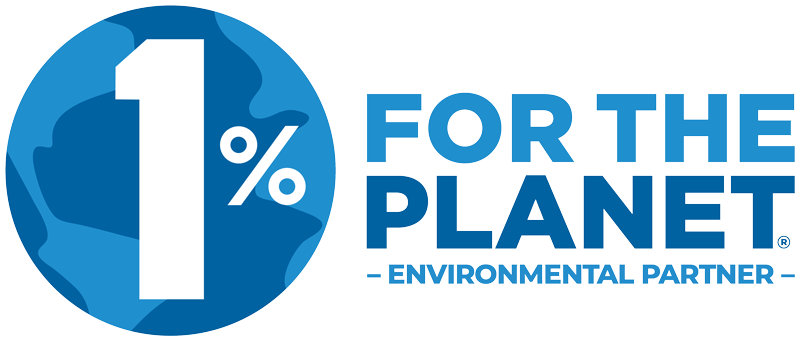
- This event has passed.
2023 Virtual Sea Otter Science Symposium
October 11, 2023 @ 9:00 am - 4:00 pm

All are welcome to join the Elakha Alliance’s 2023 Sea Otter Science Symposium on Wednesday October 11th, 9:00am-4:00pm PDT. The Symposium speakers hail from across the globe, which will make for some unique conversations and perspectives. Registration is required to attend the live presentations.
Our focus this year are the “Interrelationships of Underwater Forests.” The goal is that you take away valuable knowledge regarding the protection of our precious ocean ecosystems, no matter where you reside. You can make a difference! We are asking participants to provide a $10 registration fee, which would help the Elakha Alliance continue our work towards ocean conservation in Oregon.
Review the agenda for the Symposium below, listed in Pacific Time. To view the presenter biographies, scroll to the bottom of the page.
Wednesday October 11th: 9:00am-4:00pm PDT
9:00am: KEYNOTE: Sea otter genomes from Japan to Baja California: aquatic adaptation, fur trade devastation, and lost populations
Annabel Beichman (Seattle, Washington)
Sea otters are one of the most recently-evolved marine mammals. They have evolved many special characteristics to survive life in the ocean, including the densest fur of any species, which keeps them warm in frigid waters. Tragically, this remarkable adaptation nearly led to sea otters’ extinction at the hands of the maritime fur trade in the 18th-19th centuries, with devastating effects on coastal kelp forest ecosystems. Thanks to concerted conservation efforts, sea otters have begun to rebound across parts of their original range, but are still missing from many places where they used to thrive, particularly along the coastline that used to connect southern sea otters in California to northern sea otters in Alaska. Dr. Beichman will be telling us about how signals of sea otters’ evolution to the marine realm and the scars of the fur trade can be detected in their genetic code.
10:00am: Remotely Operated Vehicles (ROVs), AI methods of image analysis, and methods of conducting benthic surveys within bull kelp beds
Zachary Randell (Seattle, Washington)
Sea otters provide essential ecological functioning along coastal ecosystems. Challenging the evaluation of this functioning however is our limited ability to survey benthic community structure. ROVs have the potential to expand the spatial extent across which we collect data and make inferences in kelp forests, but thus far ROVs have yet to be systematically integrated into long-term kelp forest monitoring programs. As part of emerging Seattle Aquarium research, we have customized a ROV to conduct video surveys within kelp forests. Along the Olympic Coast, our work is focused on understanding how sea otters affect kelp forest community structure and resilience. These methods utilize relatively low-cost ROV hardware as well as open-source ROV software and analyses such that other entities can develop similar ROV monitoring programs.
11:00am: Can the sunflower sea star aid the recovery of kelp forests?
Aaron Galloway (Charleston, Oregon)
Your average sunflower sea star can munch through almost five purple sea urchins in a week, and they don’t seem to be picky about the quality of their food. That’s good news — and valuable data — for efforts to reintroduce these now-endangered predators to coastal ecosystems along the west coast of North America. It suggests that if sunflower sea stars returned to their former habitats, they could help keep hungry urchin populations in check and possibly help restore kelp forests. A team co-led by Aaron Galloway at the UO’s Oregon Institute of Marine Biology published the findings in Proceedings of the Royal Society B on Feb. 15. Galloway spearheaded the work alongside Sarah Gravem at Oregon State University. Learn about these findings during this lecture.
——– BREAK 12:00pm-1:00pm ——–
1:00pm: Learning to live with new old neighbors: Anecdotal observations from a coastal mariner learning how to share space with sea otters
Tiare Boyes & Russell Clark (British Columbia)
Sea Otters were reintroduced to Canada’s BC coast between 1972 and 1979. Since then, the initial 89 individuals have flourished in their traditional territories and their descendants have recolonized most of Canada’s West Coast. For the first time since the fur trade hunting days, coastal humans are having to share habitat and resources with sea otters. As a second generation commercial fish harvester, underwater scuba guide and videographer, Tiare Boyes is among the first generation who is learning to live and work alongside these marine mammals in almost a century. Speaking from 21 years of anecdotal experience working at sea, Tiare has witnessed first hand what marine environments look like before and after sea otters move back into the neighbourhood. Russell Clark is a natural history filmmaker specialising in communicating underwater environments for international broadcast audiences. He will be talking about the importance of responsible storytelling, the difficulties of working with wildlife, and why it’s harder than ever to get people to take notice of what’s on their doorstep.
2:00pm: Lessons From Haida Gwaii: How the return of sea otters can change coastal ecosystems
Lynn Lee (Haida Gwaii, British Columbia)
We know that sea otters like to eat shellfish, yet there is so much more that changes…Tune in to learn more about the visible and invisible changes that sea otters can bring to coastal ecosystems over a few years to decades after they return! Findings from the Gwaii Haanas Chiix̱uu Tll iinasdll Nurturing Seafood to Grow kelp restoration, and X̱aayda Gwaay.yaay Ḵuugaay Gwii Sdiihltl’lx̱a The Sea Otters Return to Haida Gwaii projects and research of many others.
3:00pm: Capturing our Oceans’ Secrets: Sea Otter Detection Using AI and Aerial Photo Surveys
Collin Power (Seattle, Washington)
Dive into the realm of artificial intelligence and underwater conservation as we explore the role of AI in automating sea otter detection through photo surveys. In this presentation, we’ll take you on a journey through the development and application of AI models, particularly focusing on the pioneering efforts of the U.S. Fish and Wildlife Service (USFWS) in conducting large-scale sea otter surveys across the rugged and remote Alaskan coast.
Scholarships are available for students and others for whom $10 would be a barrier by emailing Chanel Hason, chanel@elakhaalliance.org.
PRESENTER BIOS:
Annabel Beichman

Dr. Annabel Beichman is a genomics researcher with a passion for marine conservation. She grew up in Los Angeles, before heading to the east coast to go to college at Harvard University. Back in California as a graduate student at the University of California, Los Angeles (UCLA), she spear-headed the effort to sequence the sea otter genome and carried out genomic studies to understand the genetic impacts of the maritime fur trade on surviving sea otter populations. She is now a post-doctoral researcher at the University of Washington, Seattle, studying how DNA mutations and aging evolve across species.
_____________________________________________
Zachary Randall
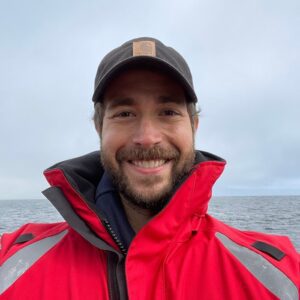 Zach is a Research Scientist for the Seattle Aquarium. They have several projects underway centered around developing methods of using small, relatively inexpensive, maneuverable, and highly customizable Remotely Operated Vehicles (ROVs) to conduct kelp forest surveys. In parallel, we are utilizing open-source artificial intelligence (AI) image analysis software to generate metrics of abundance and percent-coverage from our ROV imagery. Their objectives are to (1) harness recent advancements in robotics hardware/software in order to expand kelp forest data collection and analysis, and (2) enable other entities to adopt similar methods via open-source research (see the GitHub repo linked below). It is their hope that increasing the number of eyeballs/cameras along the seafloor will expand data collection and thereby contribute to kelp forest conservation, management, and restoration.
Zach is a Research Scientist for the Seattle Aquarium. They have several projects underway centered around developing methods of using small, relatively inexpensive, maneuverable, and highly customizable Remotely Operated Vehicles (ROVs) to conduct kelp forest surveys. In parallel, we are utilizing open-source artificial intelligence (AI) image analysis software to generate metrics of abundance and percent-coverage from our ROV imagery. Their objectives are to (1) harness recent advancements in robotics hardware/software in order to expand kelp forest data collection and analysis, and (2) enable other entities to adopt similar methods via open-source research (see the GitHub repo linked below). It is their hope that increasing the number of eyeballs/cameras along the seafloor will expand data collection and thereby contribute to kelp forest conservation, management, and restoration.
_____________________________________________
Aaron Galloway
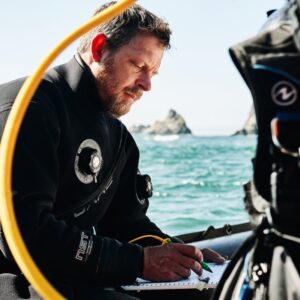 Aaron Galloway’s Coastal Trophic Ecology Lab (CTELab) at the Oregon Institute of Marine Biology is generally focused on trophic inferences in aquatic food webs, with an emphasis on algae-invertebrate interactions. To do this work we often use fatty acids as trophic biomarkers, paired with underwater natural history, scientific SCUBA diving, lab/field experimentation, and modeling. CTELab research questions are currently focused on kelp forest ecology, the trophic ecology of benthic marine invertebrates (including the sunflower sea stars, sea urchins, abalone), and the role of seaweeds and detritus as a subsidizing energy source for subtidal food webs. This work is taking place in projects throughout the NE Pacific (Alaska, British Columbia, Washington, and Oregon) and the western Antarctic Peninsula.
Aaron Galloway’s Coastal Trophic Ecology Lab (CTELab) at the Oregon Institute of Marine Biology is generally focused on trophic inferences in aquatic food webs, with an emphasis on algae-invertebrate interactions. To do this work we often use fatty acids as trophic biomarkers, paired with underwater natural history, scientific SCUBA diving, lab/field experimentation, and modeling. CTELab research questions are currently focused on kelp forest ecology, the trophic ecology of benthic marine invertebrates (including the sunflower sea stars, sea urchins, abalone), and the role of seaweeds and detritus as a subsidizing energy source for subtidal food webs. This work is taking place in projects throughout the NE Pacific (Alaska, British Columbia, Washington, and Oregon) and the western Antarctic Peninsula.
_____________________________________________
Tiare Boyes
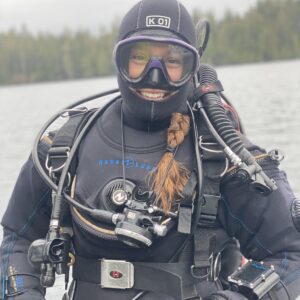 I am an underwater camera operator, photographer, commercial diver and ocean plastics artist. My life has always revolved around the ocean; understanding how we can live in a sustainable and harmonious way with it, as well as sharing the incredible beauty and amazing marine life with others in an enjoyable and educational manner drives my creativity. My passion is being immersed in the marine world, both at work and at play and showing others the splendor and beauty that it has ingrained deep in my soul.
I am an underwater camera operator, photographer, commercial diver and ocean plastics artist. My life has always revolved around the ocean; understanding how we can live in a sustainable and harmonious way with it, as well as sharing the incredible beauty and amazing marine life with others in an enjoyable and educational manner drives my creativity. My passion is being immersed in the marine world, both at work and at play and showing others the splendor and beauty that it has ingrained deep in my soul.
_____________________________________________
Russell Clark
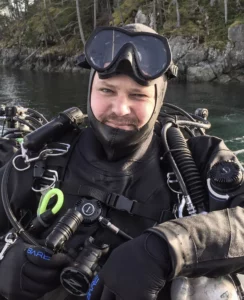 Russell is a natural history and documentary Producer and Director based in British Columbia, He specializes in underwater environments and marine life and has filmed in oceans and environments all around the world. Russell is part of the Emmy Award nominated cinematography team on Netflix ‘Island Of The Sea Wolves’ series, he won a Jackson Wild Award for his film ‘Tadpoles: The Big Little Migration’, and has just completed work on a new landmark international natural history series. He is a Fellow of the Royal Canadian Geographical Society, a much published writer and photographer, has a passion for communication, and he loves otters!
Russell is a natural history and documentary Producer and Director based in British Columbia, He specializes in underwater environments and marine life and has filmed in oceans and environments all around the world. Russell is part of the Emmy Award nominated cinematography team on Netflix ‘Island Of The Sea Wolves’ series, he won a Jackson Wild Award for his film ‘Tadpoles: The Big Little Migration’, and has just completed work on a new landmark international natural history series. He is a Fellow of the Royal Canadian Geographical Society, a much published writer and photographer, has a passion for communication, and he loves otters!
_____________________________________________
Lynn Lee
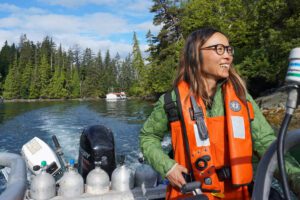
A fan of all ‘fish’ in the sea, Lynn has logged thousands of scientific dives in cold water and is currently the marine ecologist for Gwaii Haanas National Park Reserve, National Marine Conservation Area Reserve, and Haida Heritage Site. She explored ecological interactions, historical social-ecology and governance of northern abalone conservation and sea otter recovery in her doctoral thesis from Simon Fraser University. Lynn lives on a hobby farm in Tlell on Haida Gwaii with her spouse, Masu the dog, Fred the cat, Fred the sourdough, and a garden. Almost 30 years of life and work on the islands have found her engaged in a diversity of marine and land stewardship roles. A few highlights include marine biologist planner and dive biologist for the Council of the Haida Nation, marine coordinator for World Wildlife Fund Canada, stream assessment and restoration biologist, and member of many local land and marine use planning tables. When not engaged in things ecological, you might find Lynn making art, playing music, experimenting in the kitchen, biking, or walking on the beach.
_____________________________________________
Collin Power
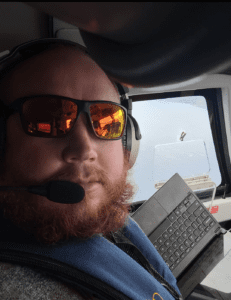 Collin Power is a dedicated community & landscape ecologist with a passion for harnessing innovative technology to support conservation and ecological research. Currently employed as a contractor at the U.S. Fish & Wildlife Service, he spearheads the development and implementation of an innovative image analysis workflow using artificial intelligence. Collin is also exploring the development of drones and AI software to automate ecological surveys. He is actively working towards his PhD in Anthropology at the University of Colorado Boulder, where he also obtained his Master’s degree, and graduated with a BS in Fisheries, Wildlife, and Conservation Biology from North Carolina State University. In addition to years of experience as a field ecologist, he is well-versed in computer skills, including programming for big data analytics, machine learning, workflow automation, and spatial analysis. Collin is committed to contributing to the field of ecological research by exploring innovative approaches that have the potential to enhance data collection efficiency and accuracy.
Collin Power is a dedicated community & landscape ecologist with a passion for harnessing innovative technology to support conservation and ecological research. Currently employed as a contractor at the U.S. Fish & Wildlife Service, he spearheads the development and implementation of an innovative image analysis workflow using artificial intelligence. Collin is also exploring the development of drones and AI software to automate ecological surveys. He is actively working towards his PhD in Anthropology at the University of Colorado Boulder, where he also obtained his Master’s degree, and graduated with a BS in Fisheries, Wildlife, and Conservation Biology from North Carolina State University. In addition to years of experience as a field ecologist, he is well-versed in computer skills, including programming for big data analytics, machine learning, workflow automation, and spatial analysis. Collin is committed to contributing to the field of ecological research by exploring innovative approaches that have the potential to enhance data collection efficiency and accuracy.

